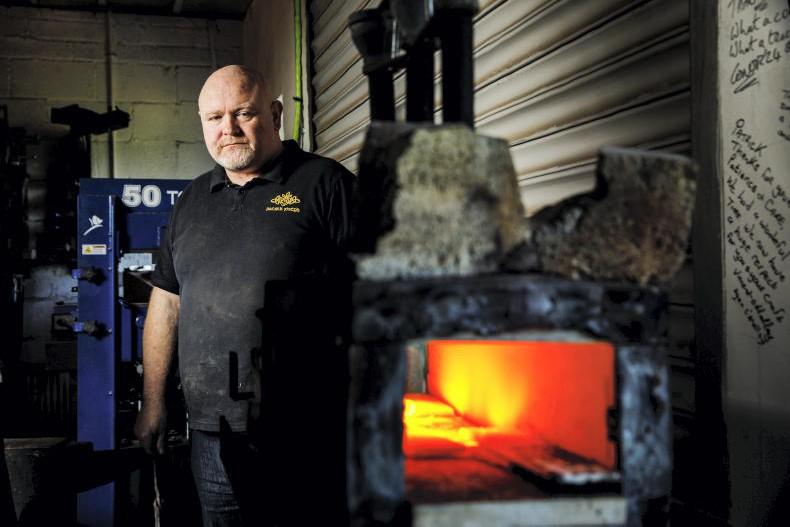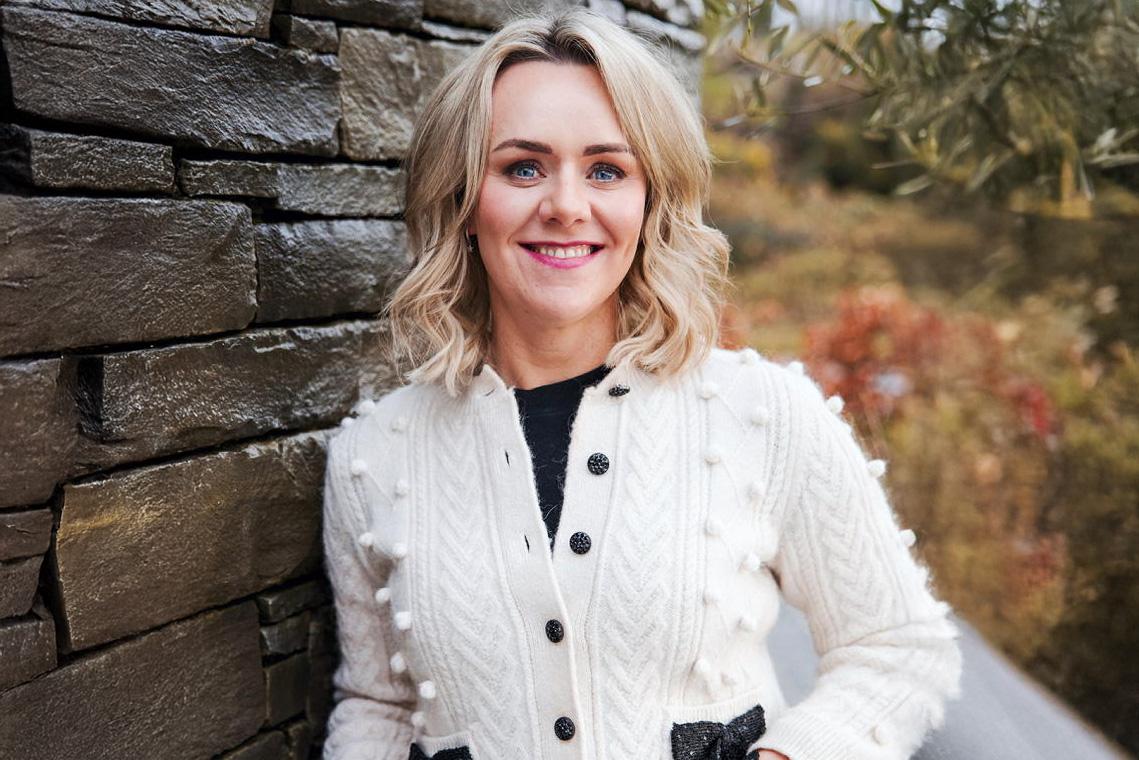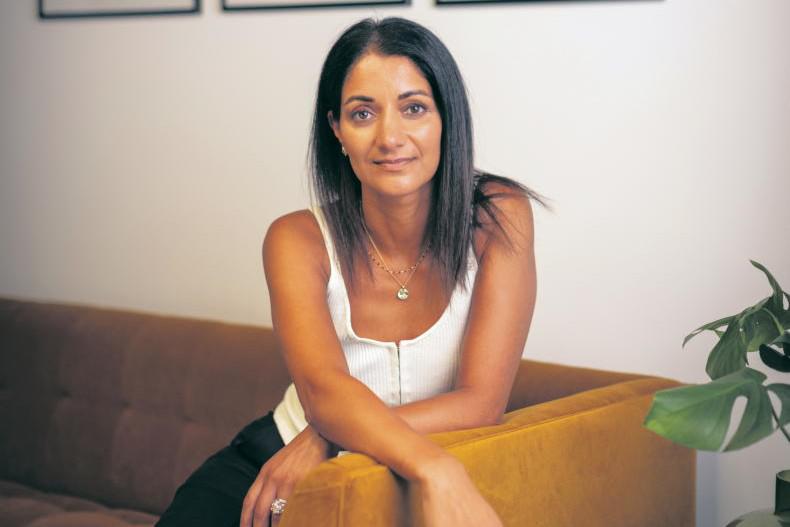last week, Galway-based Michelin Star restaurant Loam announced they would be closing for good (after previously saying they would be taking the winter off because of rising overhead costs). They are now added to the list of food establishments which have decided to permanently shut their doors in recent months.
Energy costs have much to do with the ‘final straw’ of food business closures, but this is in addition to already low profit margins, cost of overheads and labour shortages.
You have to ask yourself: if much loved, Michelin starred restaurants are closing, where does that leave the smaller food businesses – especially hospitality and food businesses in rural Ireland?
Regardless of increasing costs, there is one certainty ahead: Ireland will be welcoming airplane-loads of tourists this summer. They will be travelling the length and breadth of the country, and they will need restaurants, cafes, bed and breakfasts and hotels to be operating at their full potential.
Food business coach Tracie Daly believes mind-set is as important to the survival of a food business as financial supports. She works with small businesses to identify their strengths, weaknesses and what needs to happen to enable them to flourish.
“Mind-set is everything,” she says. “When you’re feeling overwhelmed you make rash or less-informed decisions. You’re not at your best, you’re not putting your best foot forward.”
Hospitality education
Tracie understands this on a personal level. Growing up in a household renowned for its hospitality (her mother ran a popular bed and breakfast in Kilkenny city), she went on to study hotel and catering management at Cathal Brugha Street (now known as Technological University Dublin School of Culinary Arts and Food Technology). After completing this programme, she enrolled in Ballymaloe Cookery School. She describes her time there as “the missing link” in her culinary education.
“The hack of me all these years giving it socks and loving it,” she laughs.

Tracie works with clients to understand their strengths, weaknesses and optimise efficiency and profit \ Claire Nash
“I got on the course, worked in a B&B for eight months and put myself through Ballymaloe. It changed everything. Then, I had this dream for a café. I did the backpack thing, packed my bag and went across the globe, had an amazing time, but woke up one morning and had this epiphany moment. I was like ‘I made a promise to myself,’ [about opening a café] and I needed to follow through. So I came back to Ireland, put in place the plan, and opened up The Two Dames Coffee Boutique in Kilkenny. And it was amazing.
“I was ‘that girl’ who used to call my business my baby,” she continues. “And I loved her with all of my might and all of my being. It was funny, though, the last eight months of trading I felt a change. We were going through that crazy recession [which started] in 2008. It was 2011 when I closed.”
Tracie says, if she had the knowledge and empowerment she now has, she could have saved her business, even though the recession was the deciding factor in her own closure.
“My biggest take-away from that experience is, don’t take your eye off the ball – as hard as the ball is to look at.”
Teaching and coaching
Where do you go when your dream is shattered? For Tracie, it was back to her roots. She took a position at Ballymaloe Cookery School as a senior teacher and would stay in this role for nearly a decade. It was here where she saw the variety of pupils coming through the doors, all with individual ideas, passions and needs, and this kick-started her career path into food coaching.
Heading back to her native Kilkenny, Tracie launched her food coaching business in 2019, after becoming a qualified business coach. While she is adept at the practical side of food business - menu creation, recipe development, streamlining operations to maximise efficiency and sustainable growth – what she really specialises in is empowerment.
“We haven’t normalised the fact that you don’t come out of the womb knowing how to run a successful food business in Ireland,” she explains. “You can stack good habits on top of good habits, learn as you go and bring in the right people, but even talking to the right people can be a daunting exercise for many.

Tracie Daly for ICL Jan 2023 \ Claire Nash
“To implement change in your business takes a lot of effort so understanding the brain first is important,” she continues. “We’re dealing with a lot of egos in business. Ego can be good, bad or debilitating. Someone might say, ‘Have you tried this?’ and the ego might say, ‘How dare they! They have no idea how hard this is,’ [and so on]. This overwhelm can stop you from progressing [personally and professionally].”
At the Pass
Tracie, together with Dr Orla Byrne (Assistant Professor in Entrepreneurship at UCD) and Dr Noel Murray (Head of Department for Tourism & Hospitality at Munster Technological University), recently launched a low-cost (€5 per participant), once-off programme for food and hospitality professionals called At The Pass.
The programme, which took place on 23 January and 30 January, consisted of two days of online webinars and interactive workshops. It was especially aimed at those facing big decisions in 2023 and those who have ceased trading and are figuring out what to do next.
The programme featured specialists in career development, finance, human resources, public relations and psychotherapy, among others, and was backed by the Restaurants Association of Ireland, the Vintners Federation of Ireland (VFI) and Chef Network. Tracie says the programme stemmed from her frustration at seeing news headlines saying, in Ireland, one food business was closing down each day.

At the Pass was organised by Dr Orla Byrne, Dr Noel Murray and Tracie (pictured) / Kirsty Lyons
“I got a bit cross, and – honestly – I probably still have some post-traumatic stress disorder from closing my own business,” she tells Irish Country Living. “It’s very harrowing. It’s a lonely space, and there’s no one talking about it.
“There’s funding and supports [available], but it’s money - I feel - that isn’t going in the right direction, because if we’re not dealing with mind-set, we’re going to make the same mistakes twice. We have to start at the foundations in order to discover where the cracks are within a particular business – every business is different.
“Dr Orla Byrne got in touch. She said we need to talk; we need to do something - there’s no one standing up to help these entrepreneurs. So Orla brought in Dr Noel Murray and I brought in [food PR specialist] Chris Towers, and the four of us grew this idea into the webinar.”
Tracie says the idea of the programme being virtual was important – it provided anonymity, if participants wanted that, and they could attend and engage from the comfort of their own home (especially helpful for anyone in a negative mental state).
“We had to be really mindful of the individual and their situation,” she says. “It has a heavy hitting day where we didn’t add fluff or frills, it was jam packed with expert advice and guidance and we highlighted that there are several avenues and also numerous experts that we urge business owners to connect with.”
Tracie says they are currently in discussion about the next steps in making At the Pass an ongoing service, as they have seen there is definitely a need for this kind of support to hospitality professionals.
As a rural food or hospitality business owner, the most important thing is to understand that you don’t have to face difficulties alone. Here are some of Tracie’s top tips for thriving in the current climate:
Know your fixed costs
Understand how much it costs to open the doors of your business every day before you make any profit (ask your accountant for help if this is a daunting space for you).
Price your menu items/offerings
To ensure you are reaching as close to a 75% gross profit margin as possible. Some dishes are labour intensive - or too heavy on expensive ingredients. Reflect, review, retest and amend. Take control of menu items before customers fall in love with something that could lose your business money.
As a business owner, you cannot work in your business all of the time
You must make time (within) your working day to focus on your business by prioritising accounts, marketing, deliveries, invoicing or banking.
Reflect on the pricing and suppliers you are currently using
Investigate other suppliers and consider changing, based on price and service. By not reviewing a regular cost occurrence, you risk losing money by assuming they are doing a great job. What you measure, you can manage (and what you don’t measure you can’t manage).
Invest in your skills
By outsourcing and hiring expert help, you can reach success more quickly. You must learn to ask for help from the right people.
We speak with the power couple behind the food business and community supported agriculture scheme The Edible Flower in Co Down, Northern Ireland about the realities of running an ethical, farm to fork food business.
Read more
Think snail farming is a get-rich-quick scheme? Think again
Could Irish sean bhó (cull cow) give vaca vieja a run for its money?
last week, Galway-based Michelin Star restaurant Loam announced they would be closing for good (after previously saying they would be taking the winter off because of rising overhead costs). They are now added to the list of food establishments which have decided to permanently shut their doors in recent months.
Energy costs have much to do with the ‘final straw’ of food business closures, but this is in addition to already low profit margins, cost of overheads and labour shortages.
You have to ask yourself: if much loved, Michelin starred restaurants are closing, where does that leave the smaller food businesses – especially hospitality and food businesses in rural Ireland?
Regardless of increasing costs, there is one certainty ahead: Ireland will be welcoming airplane-loads of tourists this summer. They will be travelling the length and breadth of the country, and they will need restaurants, cafes, bed and breakfasts and hotels to be operating at their full potential.
Food business coach Tracie Daly believes mind-set is as important to the survival of a food business as financial supports. She works with small businesses to identify their strengths, weaknesses and what needs to happen to enable them to flourish.
“Mind-set is everything,” she says. “When you’re feeling overwhelmed you make rash or less-informed decisions. You’re not at your best, you’re not putting your best foot forward.”
Hospitality education
Tracie understands this on a personal level. Growing up in a household renowned for its hospitality (her mother ran a popular bed and breakfast in Kilkenny city), she went on to study hotel and catering management at Cathal Brugha Street (now known as Technological University Dublin School of Culinary Arts and Food Technology). After completing this programme, she enrolled in Ballymaloe Cookery School. She describes her time there as “the missing link” in her culinary education.
“The hack of me all these years giving it socks and loving it,” she laughs.

Tracie works with clients to understand their strengths, weaknesses and optimise efficiency and profit \ Claire Nash
“I got on the course, worked in a B&B for eight months and put myself through Ballymaloe. It changed everything. Then, I had this dream for a café. I did the backpack thing, packed my bag and went across the globe, had an amazing time, but woke up one morning and had this epiphany moment. I was like ‘I made a promise to myself,’ [about opening a café] and I needed to follow through. So I came back to Ireland, put in place the plan, and opened up The Two Dames Coffee Boutique in Kilkenny. And it was amazing.
“I was ‘that girl’ who used to call my business my baby,” she continues. “And I loved her with all of my might and all of my being. It was funny, though, the last eight months of trading I felt a change. We were going through that crazy recession [which started] in 2008. It was 2011 when I closed.”
Tracie says, if she had the knowledge and empowerment she now has, she could have saved her business, even though the recession was the deciding factor in her own closure.
“My biggest take-away from that experience is, don’t take your eye off the ball – as hard as the ball is to look at.”
Teaching and coaching
Where do you go when your dream is shattered? For Tracie, it was back to her roots. She took a position at Ballymaloe Cookery School as a senior teacher and would stay in this role for nearly a decade. It was here where she saw the variety of pupils coming through the doors, all with individual ideas, passions and needs, and this kick-started her career path into food coaching.
Heading back to her native Kilkenny, Tracie launched her food coaching business in 2019, after becoming a qualified business coach. While she is adept at the practical side of food business - menu creation, recipe development, streamlining operations to maximise efficiency and sustainable growth – what she really specialises in is empowerment.
“We haven’t normalised the fact that you don’t come out of the womb knowing how to run a successful food business in Ireland,” she explains. “You can stack good habits on top of good habits, learn as you go and bring in the right people, but even talking to the right people can be a daunting exercise for many.

Tracie Daly for ICL Jan 2023 \ Claire Nash
“To implement change in your business takes a lot of effort so understanding the brain first is important,” she continues. “We’re dealing with a lot of egos in business. Ego can be good, bad or debilitating. Someone might say, ‘Have you tried this?’ and the ego might say, ‘How dare they! They have no idea how hard this is,’ [and so on]. This overwhelm can stop you from progressing [personally and professionally].”
At the Pass
Tracie, together with Dr Orla Byrne (Assistant Professor in Entrepreneurship at UCD) and Dr Noel Murray (Head of Department for Tourism & Hospitality at Munster Technological University), recently launched a low-cost (€5 per participant), once-off programme for food and hospitality professionals called At The Pass.
The programme, which took place on 23 January and 30 January, consisted of two days of online webinars and interactive workshops. It was especially aimed at those facing big decisions in 2023 and those who have ceased trading and are figuring out what to do next.
The programme featured specialists in career development, finance, human resources, public relations and psychotherapy, among others, and was backed by the Restaurants Association of Ireland, the Vintners Federation of Ireland (VFI) and Chef Network. Tracie says the programme stemmed from her frustration at seeing news headlines saying, in Ireland, one food business was closing down each day.

At the Pass was organised by Dr Orla Byrne, Dr Noel Murray and Tracie (pictured) / Kirsty Lyons
“I got a bit cross, and – honestly – I probably still have some post-traumatic stress disorder from closing my own business,” she tells Irish Country Living. “It’s very harrowing. It’s a lonely space, and there’s no one talking about it.
“There’s funding and supports [available], but it’s money - I feel - that isn’t going in the right direction, because if we’re not dealing with mind-set, we’re going to make the same mistakes twice. We have to start at the foundations in order to discover where the cracks are within a particular business – every business is different.
“Dr Orla Byrne got in touch. She said we need to talk; we need to do something - there’s no one standing up to help these entrepreneurs. So Orla brought in Dr Noel Murray and I brought in [food PR specialist] Chris Towers, and the four of us grew this idea into the webinar.”
Tracie says the idea of the programme being virtual was important – it provided anonymity, if participants wanted that, and they could attend and engage from the comfort of their own home (especially helpful for anyone in a negative mental state).
“We had to be really mindful of the individual and their situation,” she says. “It has a heavy hitting day where we didn’t add fluff or frills, it was jam packed with expert advice and guidance and we highlighted that there are several avenues and also numerous experts that we urge business owners to connect with.”
Tracie says they are currently in discussion about the next steps in making At the Pass an ongoing service, as they have seen there is definitely a need for this kind of support to hospitality professionals.
As a rural food or hospitality business owner, the most important thing is to understand that you don’t have to face difficulties alone. Here are some of Tracie’s top tips for thriving in the current climate:
Know your fixed costs
Understand how much it costs to open the doors of your business every day before you make any profit (ask your accountant for help if this is a daunting space for you).
Price your menu items/offerings
To ensure you are reaching as close to a 75% gross profit margin as possible. Some dishes are labour intensive - or too heavy on expensive ingredients. Reflect, review, retest and amend. Take control of menu items before customers fall in love with something that could lose your business money.
As a business owner, you cannot work in your business all of the time
You must make time (within) your working day to focus on your business by prioritising accounts, marketing, deliveries, invoicing or banking.
Reflect on the pricing and suppliers you are currently using
Investigate other suppliers and consider changing, based on price and service. By not reviewing a regular cost occurrence, you risk losing money by assuming they are doing a great job. What you measure, you can manage (and what you don’t measure you can’t manage).
Invest in your skills
By outsourcing and hiring expert help, you can reach success more quickly. You must learn to ask for help from the right people.
We speak with the power couple behind the food business and community supported agriculture scheme The Edible Flower in Co Down, Northern Ireland about the realities of running an ethical, farm to fork food business.
Read more
Think snail farming is a get-rich-quick scheme? Think again
Could Irish sean bhó (cull cow) give vaca vieja a run for its money?












SHARING OPTIONS